Have you ever ordered a bunch of Fortinet gear... Full Story
By Manny Fernandez
October 20, 2019
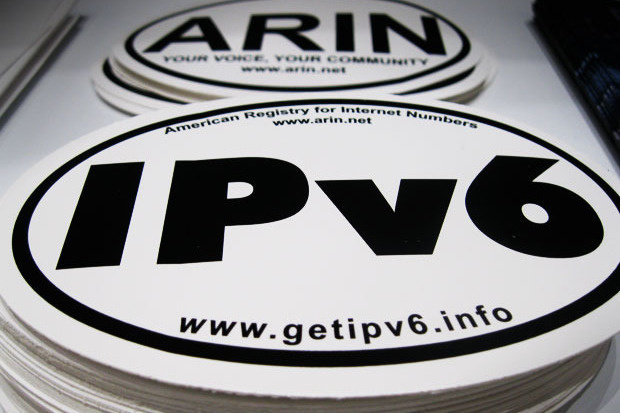
IPv6 VPNs in Fortigate Firewalls
I have two Fortigate 140Es in my environment. SecPrimate-01 and SecPrimate-02. The SecPrimate-01 is using the Mariner color while the SecPrimate-02 is using Red. Both firewalls are connected to a switch on port2 acting as Internet and each firewall has a different network on Port3. Note: In this example, I am using Unique Local Address types.
Enabling IPv6
If you have not enabled IPv6 on your Fortigate, you will need to by going to System then Feature Visibility then tick the IPv6 button.
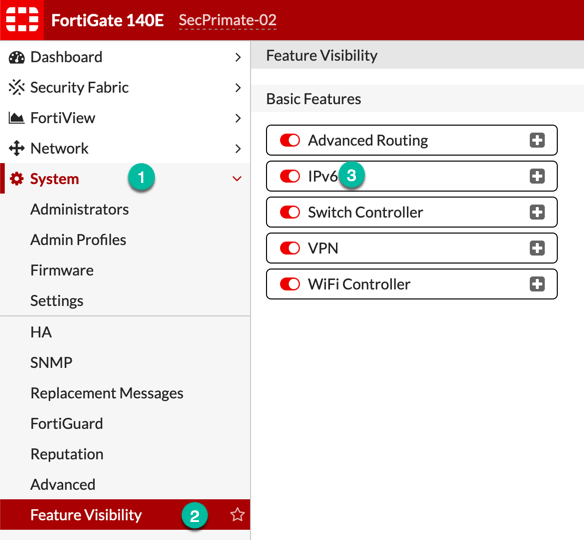
Assigning IPv6 Addresses
Next we will need to assign IPv6 Addresses to each Fortigate.

edit "port2"
set vdom "root"
set type physical
set snmp-index 10
config ipv6
set ip6-address fdf8:f53b:82e4::54/64
set ip6-allowaccess ping https http
end
next
edit "port3"
set vdom "root"
set type physical
set snmp-index 11
config ipv6
set ip6-address fd6d:8d64:af0c:1::/64
set ip6-allowaccess ping
end
next

edit "port3"
set vdom "root"
set type physical
set snmp-index 45
config ipv6
set ip6-address fd6d:8d64:af0c:2::/64
end
next
edit "port2"
set vdom "root"
set type physical
set device-identification enable
set snmp-index 46
config ipv6
set ip6-address fdf8:f53b:82e4::53/64
set ip6-allowaccess ping https http
end
next
Creating Address Objects
Now we will create the Address object that we will use for the Policies as well as the Phase II of the VPN. Note: You COULD use `::/0` in the Phase II but I am being deliberate in this example.
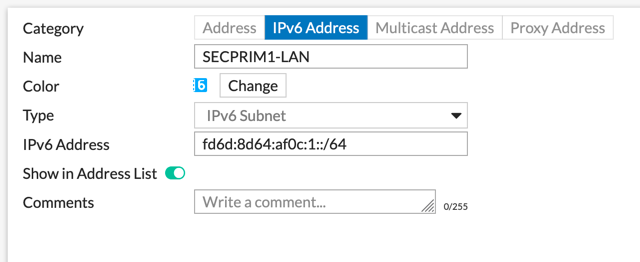
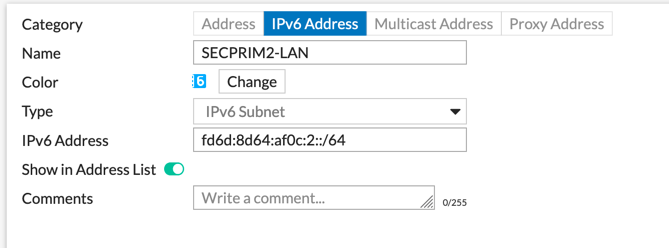
Testing Connectivity
Now lets test by performing a ping6 to the SecPrimate-02 Fortigate. Pay particular attention to the 6 after the ping. If you do not put 6 the Fortigate will assume you are trying to ping a host name in IPv4.

exec ping6 fdf8:f53b:82e4::53
Since we have connectivity, lets move on to configuring the VPN.
Configuring the IPv6 VPN
Lets go to VPN then IPsec Tunnels. I always choose Custom because I am a bit OCD about object naming and colors.
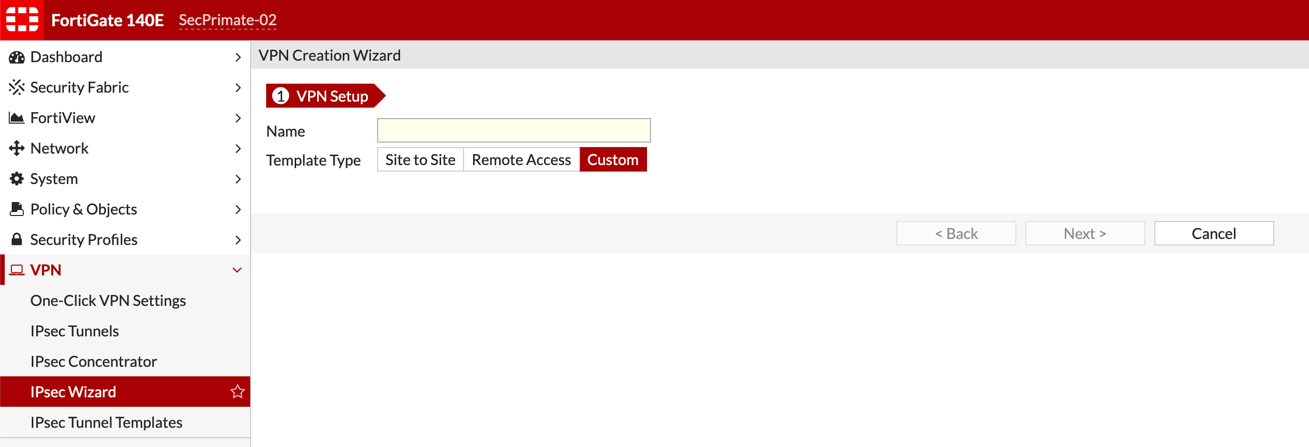
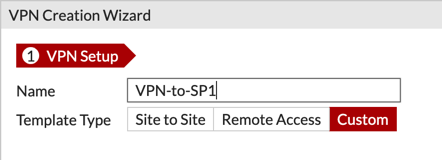
Note: That you cannot rename the VPN Tunnel, so those that know me, know I am all about the Descriptive Name.
Phase I
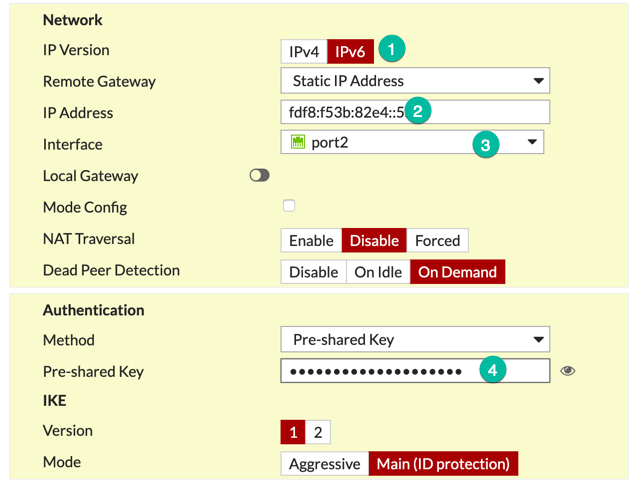
You will need to:
- Choose IPv6 as the
IP Version - Enter the remote gateway’s IPv6 Address
- Choose the Interface from where you want to connect to the remote firewall.
- Enter a Pre-Shared Key (or Signature)
Phase II
Now we will configure Phase II.
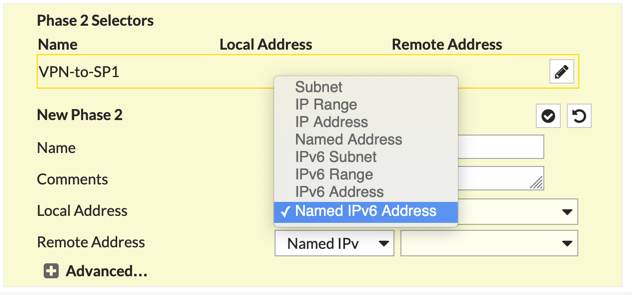
You CAN enter the IPv6 Networks manually, but we already did that in the Creating Address Object sections of this article. You can hit the drop down and choose Named IPv6 Address which will allow you to choose from the objects we created. Make sure you choose the IPv6 option or you will not see the object available.
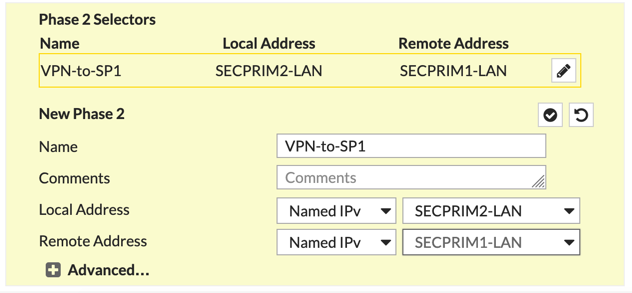
You CAN modify the encryption settings and additional features by clicking on +Advanced button. For this example, we are doing defaults.
Creating the IPv6 Policies
Now we are ready to create the policies.

Note: Under Policies and Objects you will need to choose IPv6 Policy instead of the IPv4 Policy. Here it is standard Fortigate policies. Incoming/Outgoing Interfaces, Source/Destination and Services and/or Security Profiles.
Static Routes
You will need to add static routes if you are not using a routing protocol inside the VPN.

Go to Network then Static Routes then Create New. Ensure that you choose IPv6 Static Route.
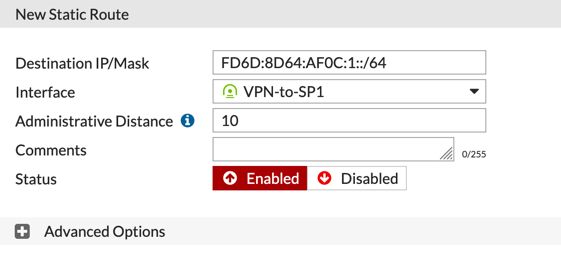
You can add a route the way you are used to doing it but obviously it would be an IPv6 address as opposed to a IPv4.
REMEMBER: Repeat these steps in on the remote Fortigate using the respective objects for Local and Remote and using the correct addresses and address objects.
Bringing Up The Tunnel
Now you can either push some traffic through the VPN or manually bring up the tunnel.

Above, you can see the Tunnel is in the Down state. Visible by the Red Arrow next to the VPN-toSP1 name. You can select the Tunnel and choose the Bring Up button on the top bar.

Now you see the tunnel is up by the color change on next to the VPN name.
Hope this helps. Stay Tuned for some more IPv6 Articles coming soon.
Recent posts
-

-

Had a customer with over 200 static routes on... Full Story
-

This is a work in progress, I will be... Full Story
